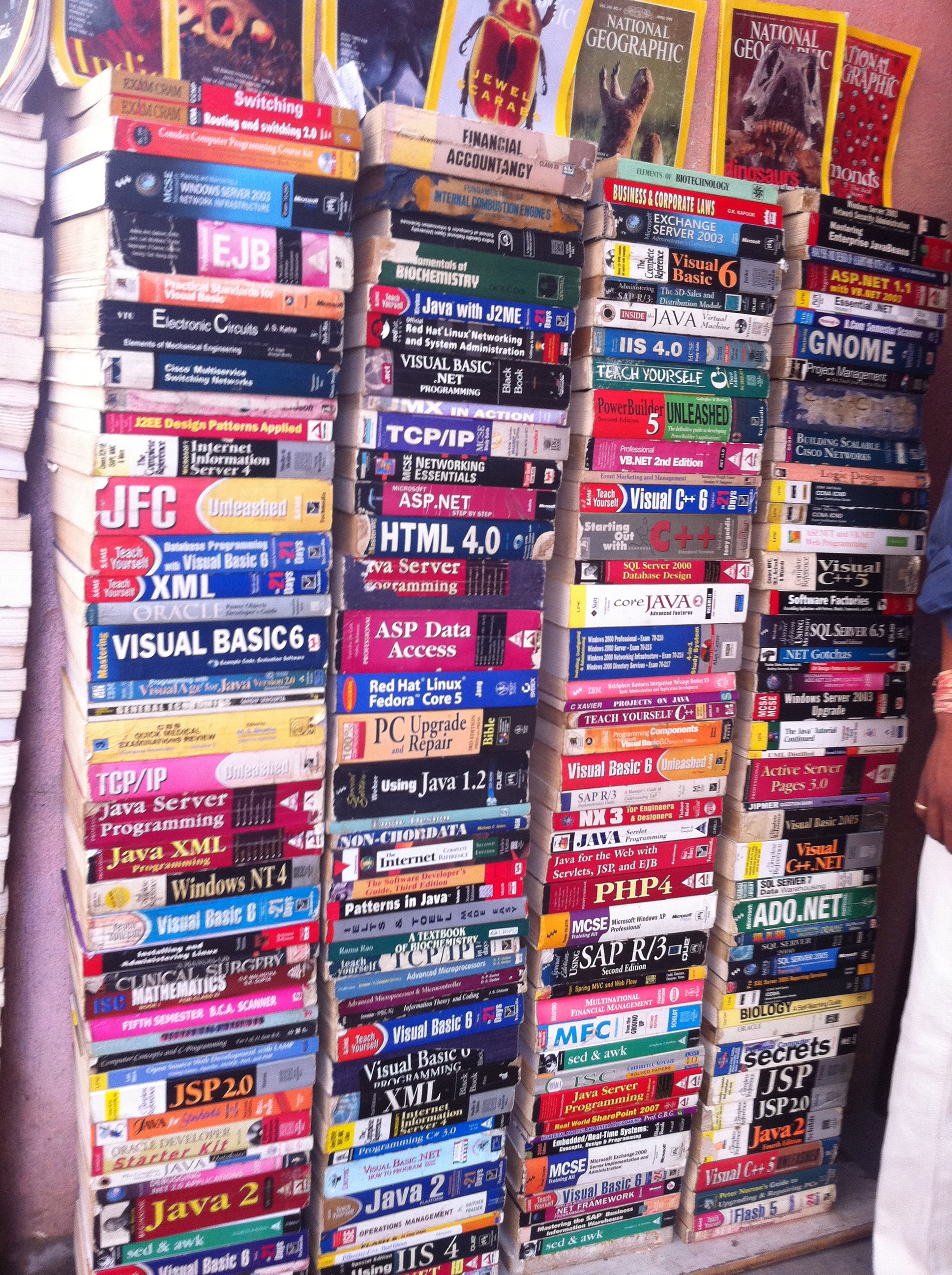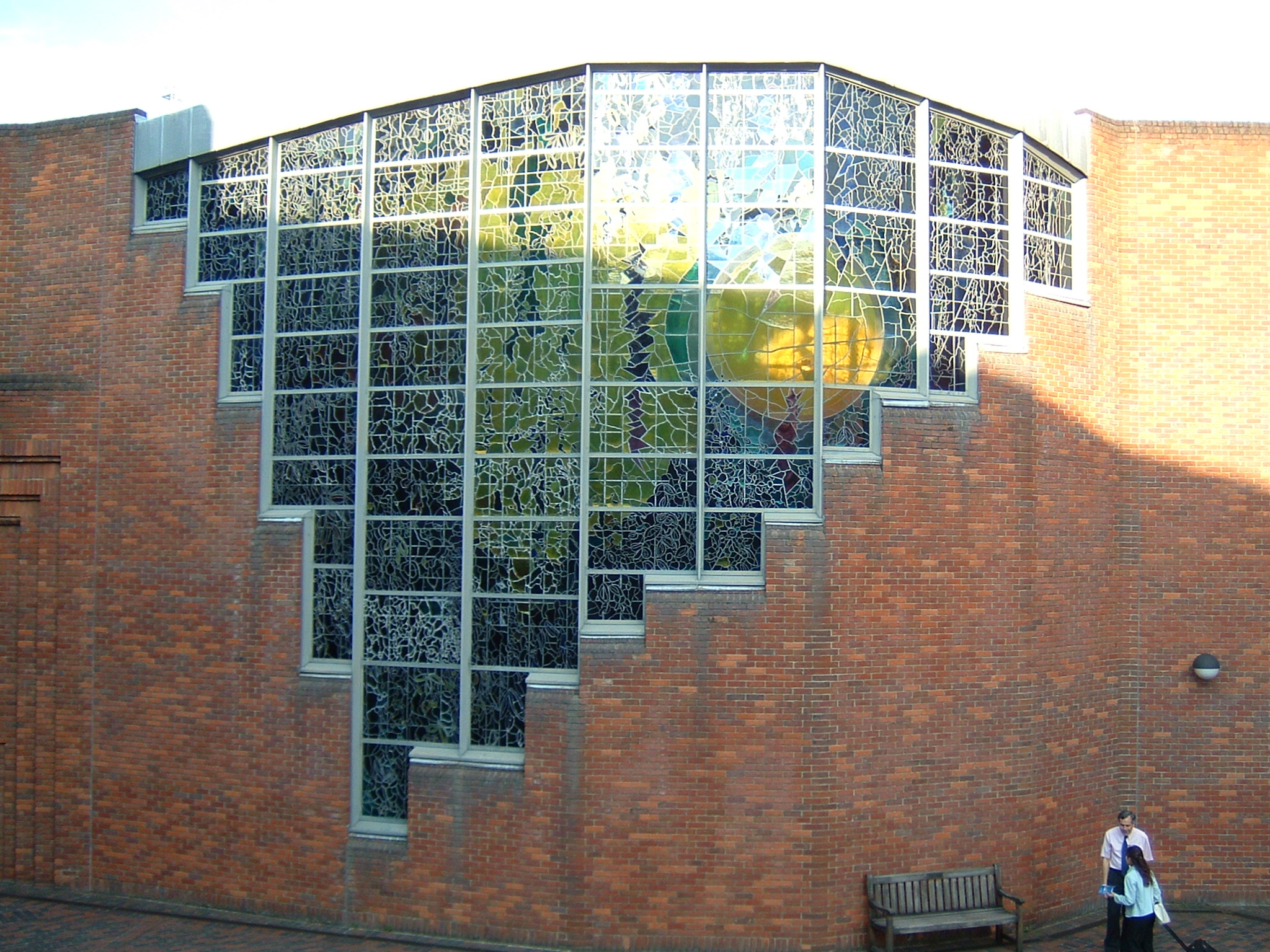|
Alan Mycroft
Alan Mycroft is a professor at the Computer Laboratory, University of Cambridge and a Fellow of Robinson College, Cambridge, where he is also director of studies for computer science. Education Mycroft read mathematics at Cambridge then moved to Edinburgh where he completed his Doctor of Philosophy degree with a thesis on ''Abstract interpretation and optimising transformations for applicative programs'' supervised by Rod Burstall and Robin Milner. Research Mycroft's research interests are in programming languages, software engineering and algorithms. With Arthur Norman (computer scientist), Arthur Norman, he co-created the Norcroft C compiler. He is also a named trustee of the Raspberry Pi Foundation, a charitable organisation whose single-board computer is intended to stimulate the teaching of basic computer science in schools. Personal life Mycroft has four children. References Living people British computer scientists Fellows of Robinson College, Cambridge ... [...More Info...] [...Related Items...] OR: [Wikipedia] [Google] [Baidu] |
Programming Language
A programming language is a system of notation for writing computer programs. Most programming languages are text-based formal languages, but they may also be graphical. They are a kind of computer language. The description of a programming language is usually split into the two components of syntax (form) and semantics (meaning), which are usually defined by a formal language. Some languages are defined by a specification document (for example, the C programming language is specified by an ISO Standard) while other languages (such as Perl) have a dominant implementation that is treated as a reference. Some languages have both, with the basic language defined by a standard and extensions taken from the dominant implementation being common. Programming language theory is the subfield of computer science that studies the design, implementation, analysis, characterization, and classification of programming languages. Definitions There are many considerations when defini ... [...More Info...] [...Related Items...] OR: [Wikipedia] [Google] [Baidu] |
Computer Science
Computer science is the study of computation, automation, and information. Computer science spans theoretical disciplines (such as algorithms, theory of computation, information theory, and automation) to Applied science, practical disciplines (including the design and implementation of Computer architecture, hardware and Computer programming, software). Computer science is generally considered an area of research, academic research and distinct from computer programming. Algorithms and data structures are central to computer science. The theory of computation concerns abstract models of computation and general classes of computational problem, problems that can be solved using them. The fields of cryptography and computer security involve studying the means for secure communication and for preventing Vulnerability (computing), security vulnerabilities. Computer graphics (computer science), Computer graphics and computational geometry address the generation of images. Progr ... [...More Info...] [...Related Items...] OR: [Wikipedia] [Google] [Baidu] |
Fellows Of Robinson College, Cambridge
{{disambiguation ...
Fellows may refer to Fellow, in plural form. Fellows or Fellowes may also refer to: Places *Fellows, California, USA *Fellows, Wisconsin, ghost town, USA Other uses *Fellows Auctioneers, established in 1876. *Fellowes, Inc., manufacturer of workspace products *Fellows, a partner in the firm of English canal carriers, Fellows Morton & Clayton *Fellows (surname) See also *North Fellows Historic District, listed on the National Register of Historic Places in Wapello County, Iowa *Justice Fellows (other) Justice Fellows may refer to: * Grant Fellows (1865–1929), associate justice of the Michigan Supreme Court * Raymond Fellows (1885–1957), associate justice of the Maine Supreme Judicial Court {{disambiguation, tndis ... [...More Info...] [...Related Items...] OR: [Wikipedia] [Google] [Baidu] |
British Computer Scientists
British may refer to: Peoples, culture, and language * British people, nationals or natives of the United Kingdom, British Overseas Territories, and Crown Dependencies. ** Britishness, the British identity and common culture * British English, the English language as spoken and written in the United Kingdom or, more broadly, throughout the British Isles * Celtic Britons, an ancient ethno-linguistic group * Brittonic languages, a branch of the Insular Celtic language family (formerly called British) ** Common Brittonic, an ancient language Other uses *''Brit(ish)'', a 2018 memoir by Afua Hirsch *People or things associated with: ** Great Britain, an island ** United Kingdom, a sovereign state ** Kingdom of Great Britain (1707–1800) ** United Kingdom of Great Britain and Ireland (1801–1922) See also * Terminology of the British Isles * Alternative names for the British * English (other) * Britannic (other) * British Isles * Brit (other) * Briton (d ... [...More Info...] [...Related Items...] OR: [Wikipedia] [Google] [Baidu] |
Living People
Related categories * :Year of birth missing (living people) / :Year of birth unknown * :Date of birth missing (living people) / :Date of birth unknown * :Place of birth missing (living people) / :Place of birth unknown * :Year of death missing / :Year of death unknown * :Date of death missing / :Date of death unknown * :Place of death missing / :Place of death unknown * :Missing middle or first names See also * :Dead people * :Template:L, which generates this category or death years, and birth year and sort keys. : {{DEFAULTSORT:Living people 21st-century people People by status ... [...More Info...] [...Related Items...] OR: [Wikipedia] [Google] [Baidu] |
Electronics Weekly
''Electronics Weekly'' is a weekly trade journal for electronics professionals which was first published by Reed Business Information on 7 September 1960. It was the first British Electronics newspaper and its founding editor was Cyril C. Gee who had previously been the editor of British Communications and Electronics. It is available in print and electronic formats, and the readership is audited by BPA Worldwide, which verifies its circulation twice yearly. The magazine's circulation in 2007 was 40,918 copies. In August 2012 Metropolis International purchased the title from RBI. Topics covered within the magazine include news and features on design, components, production and research, as well as news stories and product listings. ''Electronics Weekly'' is available free to qualified electronics professionals. The bulk of revenue received to fund the magazine comes from display and recruitment advertising. Website ElectronicsWeekly.com is a website for electronics professionals ... [...More Info...] [...Related Items...] OR: [Wikipedia] [Google] [Baidu] |
Single-board Computer
A single-board computer (SBC) is a complete computer built on a single circuit board, with microprocessor(s), memory, input/output (I/O) and other features required of a functional computer. Single-board computers are commonly made as demonstration or development systems, for educational systems, or for use as embedded computer controllers. Many types of home computers or portable computers integrate all their functions onto a single printed circuit board. Unlike a desktop personal computer, single board computers often do not rely on expansion slots for peripheral functions or expansion. Single board computers have been built using a wide range of microprocessors. Simple designs, such as those built by computer hobbyists, often use static RAM and low-cost 32- or 64-bit processors like ARM. Other types, such as blade servers, would perform similar to a server computer, only in a more compact format. A computer-on-module is a type of single-board computer made to plug into a ca ... [...More Info...] [...Related Items...] OR: [Wikipedia] [Google] [Baidu] |
Arthur Norman (computer Scientist)
Arthur C. Norman is a British computer scientist, and Fellow of Trinity College, Cambridge Trinity College is a constituent college of the University of Cambridge. Founded in 1546 by Henry VIII, King Henry VIII, Trinity is one of the largest Cambridge colleges, with the largest financial endowment of any college at either Cambridge ..., where he has previously been a Director of Studies for Computer Science. Education Awarded a distinction in computer science in 1970. Teaching Norman delivered his last lecture at the Computer Laboratory on 3 December 2008 but his notes are still used as teaching resources. The Trinity College Science Society often has Dr. Norman back for talks. Publications * Norman, A. and Cattell, G. 1983. "LISP on the B. B. C. Microcomputer" AcornSoft, Cambridge, England. * Matooane, M. and Norman, A "A Parallel Symbolic Computation Environment: Structures and Mechanics." Euro-Par 1999: 1492-1495 * Norman, A. and Fitch, J "CABAL: polynomial and power ... [...More Info...] [...Related Items...] OR: [Wikipedia] [Google] [Baidu] |
Algorithm
In mathematics and computer science, an algorithm () is a finite sequence of rigorous instructions, typically used to solve a class of specific Computational problem, problems or to perform a computation. Algorithms are used as specifications for performing calculations and data processing. More advanced algorithms can perform automated deductions (referred to as automated reasoning) and use mathematical and logical tests to divert the code execution through various routes (referred to as automated decision-making). Using human characteristics as descriptors of machines in metaphorical ways was already practiced by Alan Turing with terms such as "memory", "search" and "stimulus". In contrast, a Heuristic (computer science), heuristic is an approach to problem solving that may not be fully specified or may not guarantee correct or optimal results, especially in problem domains where there is no well-defined correct or optimal result. As an effective method, an algorithm ca ... [...More Info...] [...Related Items...] OR: [Wikipedia] [Google] [Baidu] |
Programming Language
A programming language is a system of notation for writing computer programs. Most programming languages are text-based formal languages, but they may also be graphical. They are a kind of computer language. The description of a programming language is usually split into the two components of syntax (form) and semantics (meaning), which are usually defined by a formal language. Some languages are defined by a specification document (for example, the C programming language is specified by an ISO Standard) while other languages (such as Perl) have a dominant implementation that is treated as a reference. Some languages have both, with the basic language defined by a standard and extensions taken from the dominant implementation being common. Programming language theory is the subfield of computer science that studies the design, implementation, analysis, characterization, and classification of programming languages. Definitions There are many considerations when defini ... [...More Info...] [...Related Items...] OR: [Wikipedia] [Google] [Baidu] |
Robinson College, Cambridge
Robinson College is a Colleges of the University of Cambridge, constituent college of the University of Cambridge. Founded in 1977, it is one of the newest Oxbridge colleges and is unique in having been intended, from its inception, for both undergraduate and graduate students of both sexes. The College was founded through a significant donation from the businessman and philanthropist, David Robinson (philanthropist), Sir David Robinson. In 1981 Robinson College was formally opened by Elizabeth II of the United Kingdom, Queen Elizabeth II with both undergraduate and graduate students in attendance. History The College was founded after David Robinson offered the University £17 million to establish a new college in Cambridge. Robinson later gave his College another £1 million on the occasion of its official opening. The first Graduate school, graduate students and fellows joined the College in 1977. Undergraduates (20 of them) were first admitted in 1979, but si ... [...More Info...] [...Related Items...] OR: [Wikipedia] [Google] [Baidu] |
Compiler
In computing, a compiler is a computer program that translates computer code written in one programming language (the ''source'' language) into another language (the ''target'' language). The name "compiler" is primarily used for programs that translate source code from a high-level programming language to a low-level programming language (e.g. assembly language, object code, or machine code) to create an executable program. Compilers: Principles, Techniques, and Tools by Alfred V. Aho, Ravi Sethi, Jeffrey D. Ullman - Second Edition, 2007 There are many different types of compilers which produce output in different useful forms. A ''cross-compiler'' produces code for a different CPU or operating system than the one on which the cross-compiler itself runs. A ''bootstrap compiler'' is often a temporary compiler, used for compiling a more permanent or better optimised compiler for a language. Related software include, a program that translates from a low-level language to a h ... [...More Info...] [...Related Items...] OR: [Wikipedia] [Google] [Baidu] |





